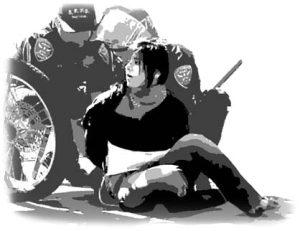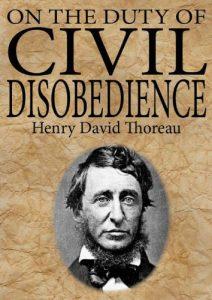Hundreds of people risk arrest in direct actions pretty much every day. Protests about the war on Gaza might top the list with thousands of arrests in the U.S. since Israel’s genocide began. Last July Nuclear Resister tallied 9,000 arrests, but that number could have doubled by now.
 Thousands have been arrested in Black Lives Matter demonstrations. Arrests during climate actions, including against tar sands and pipelines, continue every day. Nuclear Resister publicizes anti-nuclear arrests, with five here, eight there, a dozen somewhere else. Of all these arrests, most are released quickly with a future court date, but some activists knowingly risk years in prison; others are surprised by a long sentence.
Thousands have been arrested in Black Lives Matter demonstrations. Arrests during climate actions, including against tar sands and pipelines, continue every day. Nuclear Resister publicizes anti-nuclear arrests, with five here, eight there, a dozen somewhere else. Of all these arrests, most are released quickly with a future court date, but some activists knowingly risk years in prison; others are surprised by a long sentence.
With all that I’m always a little surprised that fear of jail is a top concern for so many potential war tax resisters. This came up in recent counseling conversations and workshops, even from people who have seen the short list of war tax resisters jailed since WW II. We’ve written about this before, including a 2015 blog post about the longest sentences for war tax resisters and the unusual circumstances of each case.
So what is it about war tax resistance that makes jail such a fear?
It seems there is a term for fear of the IRS and taxes: Forosophobia. I’m not sure if it’s made the dictionary yet, but apparently someone at Psychology Today coined it a few years ago, combining the Greek term for taxes, “foros,” and the one for fear. One CPA writing about fear of the IRS sees himself as “acting as both a CPA and an unlicensed therapist for my clients.”
At workshops we like to show a clip from an old “Boston Legal” episode. One of the staff members, angry about the war in Iraq, is arrested in her office for filing a blank 1040 form with a protest note attached. (After the ads, the arrest is a few minutes into this episode.) To potential resisters we can easily say “that’s not going to happen,” particularly because the federal agents arrive at her office with handcuffs the day after she mailed in her form.The IRS would not even have received the mail at that point, let alone open the envelope.*
Even after the IRS notes your refusal to pay some or all of your tax due, there are multiple steps the authorities still have to take before hauling you off to prison. In the war tax resistance network, the last person to receive a court order was Cindy Sheehan in 2012. She was not jailed (for her tax refusal anyway) and eventually the case was dropped.
I was reminded recently of Chris Coverdale, a war tax resister in England, who spent 42 days in jail in 2015 for refusing to pay his local council taxes because he believes the government could allocate those funds to war-related activities. It was his third jail term but he’s still not cooperating with Britain’s Inland Revenue. In correspondence with another UK resister about that case he said:
In Britain war tax resisters don’t get thrown into prison by the government any more. They have cannily realized that this just raises publicity for the issue. There is also the current crisis with prison overcrowding which makes it even more unlikely. Stop Oil protesters get harsher treatment.
That sounds similar to the situation here. (Nothing like what it must be to refuse war taxes in Russia, Israel, and so many other countries.)

A lasting legacy that has inspired millions from one night spent in jail.
I expect the fear of jail over tax resistance has a lot to do with the individual nature of this form of direct action. It’s not like getting arrested with dozens or hundreds of others who can share the experience. Personally, I find the idea of standing in court and trying to explain my refusal to pay taxes with no hand to hold quite intimidating. But I’ve watched others do it, felt proud of their stance, and was there for support before, during, and after. Our network is strong enough to be there for you should this rare opportunity arise.
In light of all this I often come back to a quote from Bill Ramsey in NWTRCC’s Death and Taxes film:
“The IRS has a huge collection process that lasts for years and at every stage of that collection process, the war tax resister has a choice about what to do. So that’s why I believe that it’s really a one step at a time kind of thing, and that imagining the worst possible consequences before you even begin the process is paralyzing. And it doesn’t let your conscience struggle with doubts one by one.”
— Post by Ruth Benn
* The “Boston Legal” arrestee eventually appears in court. It’s worth reading the closing argument by her lawyer played by James Spader (scroll down this page for the text).

Thanks for your post, Ruth. I always hoped I’d get to do a short stint in jail as a war tax resister or a peace activist. It would have been such an interesting and learning experience. But next week I will turn 83 and I really am to old to do risk it now. I am glad you are encouraging the young to be bold and brave….and curious!@